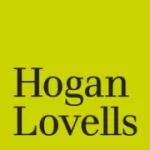The Settlement
On 8 July 2010, the HHS Office of Inspector General (OIG) announced settlement of a civil monetary penalty and Medicare exclusion case with United Shockwave Services, LLC, United Prostate Centers, LLC, and United Urology Centers, LLC, a group of related physician-owned companies. The United companies collectively agreed to pay $7,359,500.00 to settle, under the civil monetary penalty and exclusion provisions of the OIG's authority, 42 U.S.C. § § 1320a-7a(a)(7), 1320a-7(b)(7), allegations that their conduct violated the federal healthcare programs antikickback law, 42 U.S.C. § 1320a-7b(b), and the Medicare prohibition on physician self-referral, the so-called "Stark" law, 42 U.S.C. § 1395nn.
OIG described the conduct that it believed violated these laws as "leverag[ing] patient referrals to obtain contract business from hospitals." In the settlement agreement, OIG elaborated on the unlawful conduct in this way:
"in connection with the provision of [lithotripsy and laser services and items to treat kidney and other stones, and benign prostatic hyperplasia], United solicited and received remuneration, in the form of contracts, from various hospitals ... in exchange for the referral of patients to such hospitals."
With particular reference to United's physician ownership, OIG stated:
"OIG further contends that these referrals resulted, in part, from United's business practices regarding investment in, and divestiture from, United by physicians."
According to its website, United has some 330 urologist owners. The business provides, among other things, mobile lithotripsy and laser therapy units that contract with hospitals to furnish these services to hospital patients. Such contracts would allow the companies to earn fees by billing for the hospital-based services ordered by their physician owners, and also would confer other value on the companies and their owners (e.g., as a business with tangible assets, it could be pledged as collateral for loans). The OIG's theory appears to be that by offering United the opportunity to profit from the contracts, the hospital was paying remuneration to United's physician owners in exchange for their referral of patients to those hospitals.
Implications for Other Physician-Owned Companies
OIG's language in describing this settlement may also indicate an increased interest in the fraud and abuse risks posed by other physician-owned companies. The OIG's press release stated the OIG's "serious kickback concerns when companies link investment opportunities to the ability to generate business and offer returns on investment that are disproportionate to business risk." In addition, OIG Senior Counsel Kevin Barry was quoted emphasizing the importance of the settlement "for a couple of reasons, but particularly because it does involve a physician-owned enterprise."
These concerns, and the theory apparently followed by OIG in this case, seem particularly applicable to the business model employed by physician-owned implant companies (POCs). Whether organized as sellers (distributors or manufacturers), group purchasing organizations, or commissioned sales agent distributors (PODs), these physician-owned entities leverage the referrals of their physician-owners into contracts with the hospitals where the physicians perform their procedures to implant the devices they order for their patients. Moreover, the physician-owners of a POC clearly are offered their investment opportunity because of their ability to generate business. In addition, because the physician-owners control the company's revenue flow with their own referrals, such entities carry no real business risk for the investors, with the result that investment returns inherently are disproportionate to any business risk.
The OIG's approach to this physician-owned enterprise thus parallels the analysis Hogan Lovells attorneys have applied to POCs in a number of writings. See, for example, "Physician-Owned Intermediaries in the Medical Device Industry: The Case for Government Scrutiny Under the Fraud and Abuse Laws", (February 2009) and other materials at Hogan Lovells' Health Resources site.
It remains to be seen whether this approach portends a new enforcement focus by OIG on POCs, but this settlement certainly is consistent with the theory that the POC business model presents serious antikickback and Stark law risks and may well be subject to closer government scrutiny in the months and years ahead.
The content of this article is intended to provide a general guide to the subject matter. Specialist advice should be sought about your specific circumstances.

